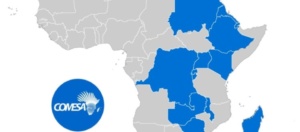The World Health Organization (WHO) has issued a health emergency alert about a possible Zika outbreak in Angola, urging the Angola Ministry of Health to immediately begin implementing its planned interventions to minimize the impact. The WHO’s alert is particularly alarming because it is issued in response to a growing number of cases of microcephaly among newborns in Angola particularly in Luanda.

Microcephaly is a rare neurological condition in which an infant’s head is significantly smaller than the heads of other children of the same age and sex. Sometimes detected at birth, microcephaly is usually the result of the brain developing abnormally in the womb or not growing as it should after birth. An infected pregnant women can transmit Zika to her fetus, which can lead to brain abnormalities. As of 29 November 2017, a total of 42 cases of microcephaly had been reported, of which 39 occurred in live births and three were in stillbirths. 39 cases were identified in Luanda Province, especially in the southern part of the city. The other three cases came from Zaire Province, Moxico Province and Benguela Province.
The WHO’s alert is cautiously worded, saying that the reported cases of microcephaly in Angola may be caused by the Zika virus, which is transmitted by the same type of mosquito that transmits yellow fever. Zika can also be sexually transmitted from an infected man to a woman through intercourse. According to the WHO alert, Angolan health authorities have established that most of the microcephaly cases are coming from populations in lower socio-economic groups, in the suburbs of the Luanda; the same areas were most affected by the yellow fever outbreak of 2015-16.
The American government’s Center for Disease Control has published an alert that is less cautious in its assessment of the danger of Zika in Angola than the WHO’s. The CDC alert advises pregnant women not to travel to Angola, and, if a pregnant woman has a partner who lives in or has traveled to Angola or any other area with risk of Zika, either to use condoms or not to have sex for the rest of the pregnancy. Zika symptoms can often be extremely mild, meaning that most of those infected do not know that they have been exposed to the virus.
A recent outbreak of Zika in Brazil caused more than 170,000 cases of microcephaly in 2016. The Brazilian outbreak provoked global concern, particularly because of the large numbers of people who traveled to Brazil for the 2016 Olympic Games. Brazil took aggressive actions to reduce the population of the mosquitoes (aedes aegypti) that transmit the virus. In May 2017, Brazil declared an end to its state of health emergency because the number of cases had dropped to around 7,000 in 2017. The Brazilian government said it would continue its assistance to children with microcephaly and to their mothers, and it actions to reduce the size of the Aedes population.
According to the WHO, the Angolan Ministry of Health is planning to take measures to reduce the number of Aedes aegypti mosquitoes in order to minimize the risk of Zika virus transmission to humans. Angolan health authorities are reportedly enhancing Zika-related risk communication to the public, including the mobilization of local leaders and communities to increase participation in Zika control activities. Health authorities also intend to strengthen diagnosis, treatment and care at specially designated hospitals. Unfortunately, because of its weak public health system, Angola finds itself unable to deal with even commonly found diseases such as malaria. The Zika warning should therefore raise considerable concerns about the ability of the country to cope with this new threat.
Kindly follow us on twitter:@AfricanVoice2










